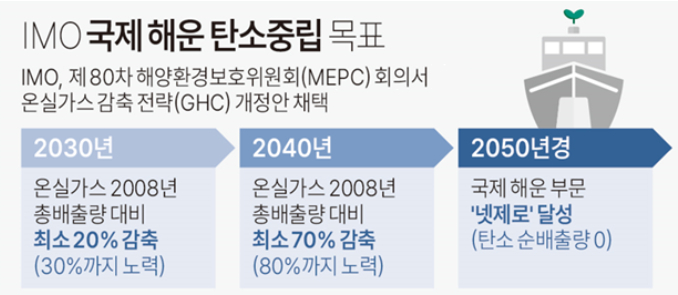 Overview of Bio-Marine Fuel
Overview of Bio-Marine Fuel
“Bio-Marine Fuel”refers to biofuel (fuel refined from vegetable oils and fats, waste cooking oil, and oleochemical byproducts) that can be mixed with existing marine fuel, which is an eco-friendly fuel that emits almost no sulfur oxides and can reduce carbon emissions by more than 65% compared to existing fossil fuel-based marine fuel.
* The 80th MEPC announced that if biofuel with a carbon emission reduction effect of more than 65% compared to existing fossil fuels is included in marine fuel, it is accepted as 'bio-marine fuel'
 IMO Net Zero for Global Shipping
IMO Net Zero for Global Shipping
The development and use of bio-marine fuel is part of international efforts to reduce greenhouse gas (GHG) emissions from the shipping industry. Organizations such as the International Maritime Organization set goals to reduce carbon emissions from the shipping industry and are encouraging the development and use of renewable fuels such as bio-marine fuel to achieve this goal.

 Measures for Net Zero
Measures for Net Zero
Existing ships: Use of bio-fuel ⇨ Available to place and use without modifying existing facilities & excellent economic feasibility compared to low-sulfur fuel
New ships: Order of ships powered by eco-friendly fuels (LNG, methanol, ammonia and hydrogen)